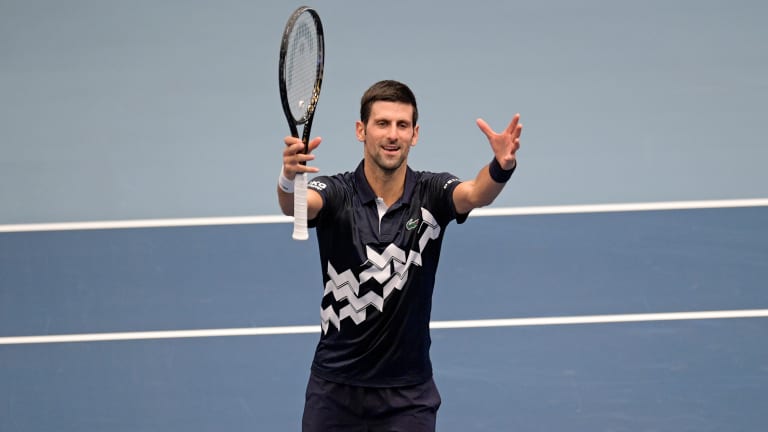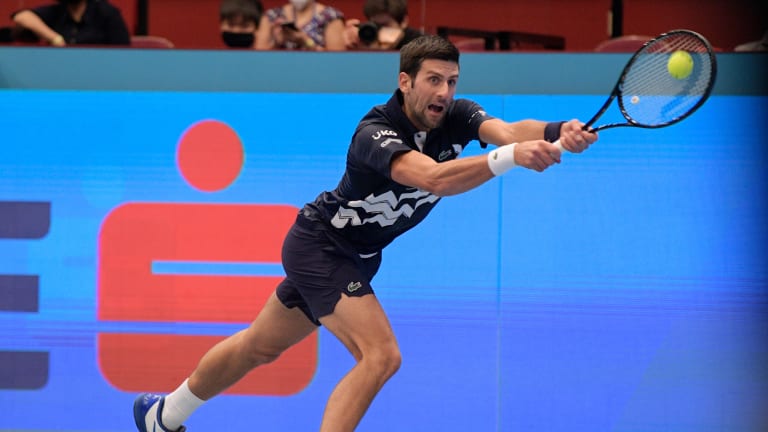ATP Vienna, Austria
Eye on the prize: Novak Djokovic closes in another year-end No. 1 rank
By Oct 27, 2020ATP Vienna, Austria
Jannik Sinner's Vienna triumph caps "incredible experience" at Austria's top tournament
By Oct 26, 2025ATP Vienna, Austria
What did Alexander Bublik say to Jannik Sinner at net after Vienna loss?
By Oct 24, 2025ATP Vienna, Austria
Progress report: Filip Misolic leaves Vienna with positive moments to put towards season finish
By Oct 24, 2025ATP Vienna, Austria
Stefanos Tsitsipas pulls out of Vienna, marking third straight ATP withdrawal
By Oct 21, 2025ATP Vienna, Austria
Vienna's Erste Bank Open boasts an incredible field, with only drama guaranteed
By Oct 21, 2025ATP Vienna, Austria
Inside Jannik Sinner's Vienna return
By Oct 21, 2025ATP Vienna, Austria
Jack Draper topples Karen Khachanov to capture biggest title in Vienna
By Oct 27, 2024ATP Vienna, Austria
Karen Khachanov upsets De Minaur and will play Jack Draper for Vienna title
By Oct 26, 2024ATP Vienna, Austria
Great Britain’s Jack Draper reaches biggest final of career in Vienna, secures Top 15 debut
By Oct 26, 2024Eye on the prize: Novak Djokovic closes in another year-end No. 1 rank
The Serb can add as many as 500 points to his season total this week by winning Vienna, and would clinch the year-end No. 1 ranking for a sixth time.
Published Oct 27, 2020
Advertising

Eye on the prize: Novak Djokovic closes in another year-end No. 1 rank
© Getty Images
Advertising

Eye on the prize: Novak Djokovic closes in another year-end No. 1 rank
© Getty Images